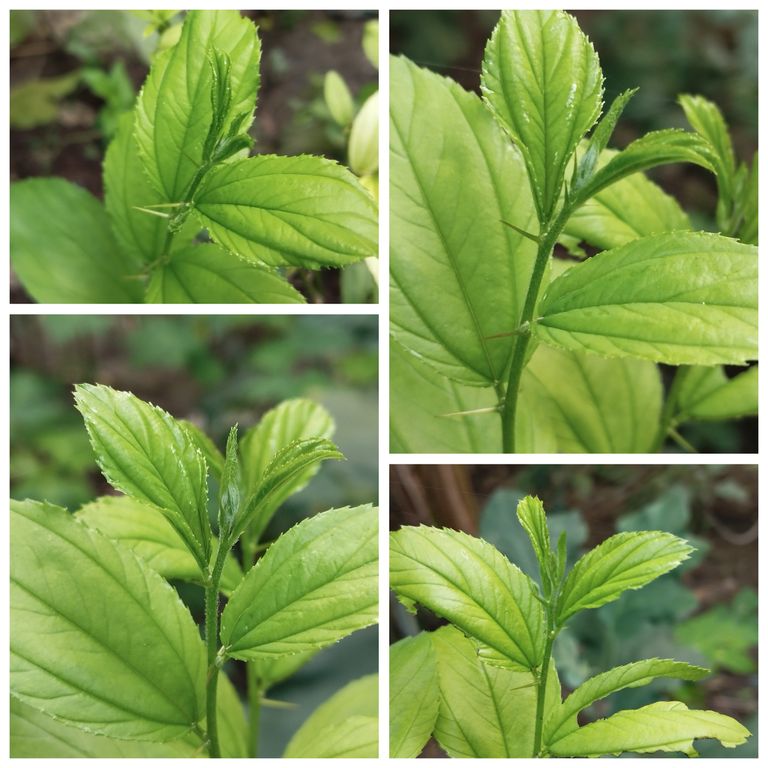
Health Benefits of Jujube Leaves Boroi Pata.
Jujube, commonly known as boroi in South Asia, is widely celebrated for its fruit. However, the leaves of the jujube tree also offer a wealth of health benefits that often go unnoticed. Known for their nutritional richness and medicinal properties, jujube leaves have been used in traditional remedies for centuries. Let’s dive into the amazing health benefits of jujube leaves and how they can be a natural aid for various health issues.
Rich Source of Antioxidants
Jujube leaves are packed with antioxidants, which help fight free radicals in the body. Free radicals can lead to cellular damage and are associated with aging and various diseases, including cancer. Regular use of jujube leaves may help protect the cells, prevent oxidative stress, and support overall cellular health.
Boosts Immunity
The natural compounds in jujube leaves, such as flavonoids and phenolic acids, play a crucial role in enhancing the immune system. These bioactive compounds help the body fight infections, making jujube leaves an excellent herbal remedy for boosting immunity. They work to strengthen the body's defenses, helping you stay healthier and ward off infections.
Promotes Skin Health
Jujube leaves contain several skin-friendly nutrients, including vitamin C, which promotes collagen synthesis, essential for maintaining skin elasticity and preventing premature aging. In traditional skincare routines, jujube leaves are used to treat acne, scars, and other skin conditions. Using jujube leaf-infused water as a face rinse or applying it as a natural paste may help soothe and rejuvenate the skin.
Anti-inflammatory Properties
Inflammation is the body’s response to infection or injury, but chronic inflammation can lead to various health issues, including arthritis and heart disease. Jujube leaves have natural anti-inflammatory properties, which can reduce inflammation and pain. Consuming jujube leaf tea or using it topically may provide relief from joint pain, swelling, and other inflammatory symptoms.
Improves Digestive Health
Jujube leaves are known to have mild laxative effects, which can help relieve constipation and promote regular bowel movements. They also aid in maintaining a healthy gut environment, which is essential for good digestion and nutrient absorption. Drinking tea made from jujube leaves may help ease stomach discomfort, reduce bloating, and improve digestion.
Aids in Weight Management
Jujube leaves are low in calories and high in fiber, making them a great addition to a weight-loss regimen. The fiber content helps you feel full longer, reducing the likelihood of overeating. Additionally, the natural compounds in jujube leaves may help regulate metabolism, further aiding in weight management.
Regulates Blood Sugar Levels
One of the most remarkable benefits of jujube leaves is their ability to help regulate blood sugar levels. The leaves contain natural compounds that may improve insulin sensitivity, helping to stabilize blood sugar. This makes jujube leaves beneficial for individuals with diabetes or those at risk of developing diabetes. Drinking jujube leaf tea regularly can be a simple, natural way to support blood sugar management.
Supports Heart Health
Jujube leaves are beneficial for heart health in several ways. They help reduce high blood pressure, lower cholesterol levels, and improve blood circulation. The antioxidants in jujube leaves protect the heart from oxidative stress and inflammation, reducing the risk of cardiovascular diseases. Incorporating jujube leaves into your diet may contribute to maintaining a healthy heart.
Reduces Stress and Anxiety
In traditional medicine, jujube leaves are known for their calming effects. They are used to relieve stress, anxiety, and even insomnia. The natural compounds in jujube leaves can have a mild sedative effect, promoting relaxation and restful sleep. Drinking jujube leaf tea before bed can help calm the mind and improve sleep quality.
Enhances Respiratory Health
Jujube leaves are also beneficial for respiratory health. They are often used to treat coughs, colds, and other respiratory conditions. The anti-inflammatory and antioxidant properties of jujube leaves help soothe the respiratory tract, reduce congestion, and alleviate symptoms of respiratory issues. For relief, jujube leaves can be boiled to make tea or used in steam inhalation.
How to Use Jujube Leaves
Jujube Leaf Tea
Take a handful of fresh or dried jujube leaves.
Boil the leaves in water for about 5-10 minutes.
Strain and enjoy the tea with a touch of honey or lemon, if desired.
Topical Use
Crush fresh jujube leaves and mix them with a little water to make a paste.
Apply the paste to the skin for soothing effects on acne, scars, or skin irritations.
In Cooking
Some traditional recipes incorporate jujube leaves for added flavor and health benefits. They can be added to soups or broths to enhance the nutritional profile of the dish.
Precautions
While jujube leaves are generally safe for most people, it's always a good idea to consult a healthcare provider before adding any new herbal remedy to your routine, especially if you’re pregnant, nursing, or have underlying health conditions.
Final Thoughts
The humble jujube leaf is packed with health benefits, offering a natural way to boost immunity, manage blood sugar, support digestion, and promote skin and heart health. Adding jujube leaves to your diet or daily routine can be a simple and effective way to enhance overall well-being.